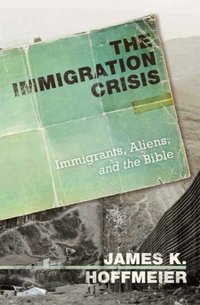|
There has been much debate over the years regarding the view of immigration and border control that was shared among the founding fathers of our nation. Historians on both sides of the argument have attempted to co-opt the founders into their camp, and there is so much misinformation on the subject that it is difficult to ascertain anything about the actual view of our founders without abandoning modern research and returning to the original source documents from those great men who formed our nation.
3 Comments
I did not watch this year's State of the Union address. In fact, I have never watched a State of the Union address. I always wait to read the transcript afterwards instead. I have found that reading a transcript of a speech allows me to focus on the actual content of the speech without the distraction of the speaker's theatrics. And when I read this year's State of the Union address from Donald Trump, I found that this practice of separating content from theatrics gave me a fairly unique perspective of a speech that many of my friends were describing as the greatest State of the Union address they've ever heard.
I was recently challenged with a question about the Bible and immigration, and to answer the challenge, I looked up every occurrence of the words “stranger,” “foreigner,” and “alien” in the Bible. The resulting list was fascinating to read, and in doing so, I discovered the following seven principles about immigration that are taught in Scripture.
Earlier this week, John Zmirak and Kelly Kullberg published an article on The Stream in which they claimed to present “9 Things Jesus Might Do About Immigration.” A friend of mine sent me the article and asked for my thoughts, so here is a point by point response to each of the ridiculous claims made in that article:
Thou Shalt not Oppress the Stranger: A Review of "The Immigration Crisis" by James Hoffmeier9/16/2017  The Purpose of the Book The purpose of this book was to prove that the commands regarding Israel’s treatment of strangers were only intended to apply to legally resident aliens. In order to prove this point, Hoffmeier put forward the claim that “In the Hebrew Bible the alien (ger) was a person who entered Israel and followed legal procedures to obtain recognized standing as a resident alien.” In contrast, Hoffmeier described the foreigner (nekhar) as |
Bill Fortenberry is a Christian philosopher and historian in Birmingham, AL. Bill's work has been cited in several legal journals, and he has appeared as a guest on shows including The Dr. Gina Show, The Michael Hart Show, and Real Science Radio.
Contact Us if you would like to schedule Bill to speak to your church, group, or club. "Give instruction to a wise man, and he will be yet wiser: teach a just man, and he will increase in learning." (Proverbs 9:9)
Search
Topics
All
Archives
June 2024
|






 RSS Feed
RSS Feed